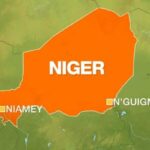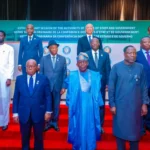It has been a year since the governor of Niger State, Alhaji Mohammed Umar Bago, assumed office. I don’t know to what extent the governor is aware of the task ahead of him or, for that matter, how well he is ready for it. But I mince no words in saying that Farmer Bago, as he is now known, has his work cut out for him. And if asked, as a Nigerlite myself, I will say that the most important of those tasks are three.
The first is to revamp the political fortunes of the state within Nigeria’s national affairs. The second is to rebuild and redirect the internal politics of the state away from the current bitter and internecine sibling rivalry between the three zones of the state towards a more inclusive, more functionally strategic, and ultimately more rewarding politics for all Nigerlites, regardless of station or location. Third, the new governor would need to raise or at least reclaim the level of governance in the state in all respects higher and above what Nigerlites have enjoyed in the past ten years or so.
In a way, all three are linked. The political fortunes of the state in relation to the wider Nigeria have dwindled in large part because internal politics lost its way and became stuck in the bitterest depths of inter-zone rivalry among the dominant groups of the state’s three senatorial districts. And unfortunately, both of these—the shrunken stature of the state within Nigeria’s national politics and the poor management of local politics—have combined to weaken governance and its outcomes in the state for so long. It is not just that Niger is arguably the most badly governed state in the country over the past 10 years or so, it is, I must say, a state where government has effectively come to have no purpose at all.
Changing all these is the task that lies ahead of Governor Bago and his new government, because, much like Nigeria itself, the retrogression has now reached a level where it hurts nearly everyone in the state. But first is to get the point. It was not too long ago that the official nickname of the state, “Power State”, which alludes to the state as the home of Nigeria’s hydroelectric power in Kainji, Shirororo and the long-awaited Zungeru power stations, was mistaken by many Nigerians to imply the political standing of the state within Nigeria’s wider affairs. That is, as a state that exudes political power having produced two Nigerian heads of state only five years apart.
- ‘Japa syndrome’ affecting hospital operation in Nigeria – FMC CMD
- There’ll be no room for internal, external aggression in Nigeria — Military
It was a rather needless misinterpretation, of course, but it illustrates the point. Generals Ibrahim Badamasi Babangida (IBB) and Abdulsalami Abubakar, each in their own different but complementary ways, defined Nigerian politics for more than two decades. But Nigerlites have been strong players in Nigeria’s traditional, military, political, and intellectual spheres of life long before the two Generals’ ascent to the highest office in the land.
The late Abubakar Imam was not just a writer and editor of the Gaskiya Tafi Kwabo, but was also “the political pilot of Northern Nigeria”, according to Malam Sa’adu Zungur, himself a poet. And in both the First and Second Republics, Bida and Kontagora were hotbeds of radical and conservative politics alike, with many Nigerlites as prominent and leading members of NEPU/PRP or NPC/NPN.
In the Third Republic, several vied for the presidency, and did so on a scale that could not, unlike today, have been dismissed as a joke. In government and administration, sons and daughters of the state held positions as high up as the Secretary to the Government of the Federation (SGF) or discharged very sensitive national assignments like the Census or the reclaiming of the Ahmadu Bello University Zaria from its near-death in the 1990s, not to mention federal ministers that everyone in Nigeria remembers.
Most of all this has now gone with the wind. You could say that the Chief Servant of Niger State, Mu’azu Babangida Aliyu, was the last Chairman of the Northern Governors Forum, and you could be right. And I mean this seriously because since the Chief Servant left it, that position has almost lost its meaning in Nigerian national politics. You could also say that the current Minister of Information and National Orientation, Mohammed Idris, is the only minister Niger State has produced in the past 15 years, and could almost certainly be right. But the broader point is that the rise of Nigerlites to prominent positions in Nigerian national politics and government has declined considerably in the past 15 years or so, and with it the state’s national political fortunes too.
Today, hardly any Nigerlite has even been considered for any of these roles within Nigeria’s national government and politics over the past 15 years or so. For all the zoning and micro-zoning of principal offices in the National Assembly since 1999, no Nigerlite has come anywhere near the positions of Senate President or Speaker, or for that matter their deputies. No ruling party chairmen either; not even chairman of a major opposition party. Everyone in Nigeria knew who Nuhu Aliyu was when he served in the Senate, but since then, you would struggle to remember a single member from Niger State who distinguished themselves nationally in the either chamber of the National Assembly.
And other than Professor Jerry Gana and Mohammed Idris now, no one knew if the state had a minister in the federal government or not in the past 15 years or so, even though by law there must be. Successive federal ministers from the state during this period tend not to be much known in the state, let alone across the rest of the country. Moreover, positions like Secretary to the Federal Government or heads of really serious federal agencies and departments have been out of reach, even where these are ‘zoned’ to the north-central – the ill-fated and ill-fitted sub-region that the state is now supposed to belong. There have been an Inspector General of Police and the Chief Justice of Nigeria, enviable positions no doubt, but also earned through the ranks, rather than by pulling clout in national affairs.
All of these things matter. In a federal assemblage of states such as we have in Nigeria, the economic fortunes of a state often depend not just on the natural resources it commands or its population size, nor even its share of the national economy, but also on the number and level of people it has within the central government.
My point, therefore, is that where previously Niger State was at or near the centre of national politics, and precisely for that reason benefitted much from it, today, its prestige within that federal setting has shrunken, and with it the state of affairs at home. How did Niger State get to this sorry state of affairs? That is the question for next week, God willing. For now, Barka da Sallah!

 Join Daily Trust WhatsApp Community For Quick Access To News and Happenings Around You.
Join Daily Trust WhatsApp Community For Quick Access To News and Happenings Around You.


